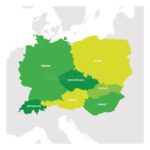Assessment on Barriers to Enrolment for Adolescent Out-Of-School Ukrainian Refugees in Poland
Background
Following Russia’s invasion of Ukraine in February 2022, an estimated 8 million Ukrainians have been displaced across Europe, with a significant number seeking refuge in Poland. Among these refugees, many adolescent Ukrainian refugees aged 14-18 are currently out of school. Barriers to enrollment in the Polish education system include language barriers, disruptions in online Ukrainian schooling due to infrastructure issues, and other socio-economic factors. This situation raises significant child protection concerns, as out-of-school adolescents are more vulnerable and have limited access to essential services.
The project focuses on understanding and addressing these barriers to support the integration of Ukrainian adolescents into the education system in Poland. It aims to provide critical insights to inform policy and programmatic interventions that can help improve the educational outcomes and overall well-being of these young refugees.
Triangle’s Assignment
Triangle was commissioned by Fundacja CARE International in Poland to conduct comprehensive research on the needs and conditions of out-of-school adolescent Ukrainian refugees in Poland. The primary goal is to inform CARE’s future strategy and programming, potentially contributing to the improvement of education and child protection initiatives within the Ukraine refugee response in Poland. Triangle’s role includes developing a detailed research design, implementing research activities, and ensuring the active involvement of CSOs throughout the research process. This collaboration aims to enhance the capacity of CSOs to utilize the research findings effectively.
Objectives
The assignment had several key objectives:
- To understand barriers to participation in the Polish and Ukrainian education systems and environments enabling participation, and any other push and pull factors.
- To map and understand social networks, coping mechanisms, and support systems used by out-of-school adolescent Ukrainian refugees.
- To identify strategies to increase resilience and enable enrolment or re-enrolment of out-of-school adolescent Ukrainian refugees in the education system.
- To provide actionable recommendations for CARE and other stakeholders to improve education and child protection programs for adolescent refugees.
Research Approach & Methodology
Triangle employed a mixed-method approach to gather comprehensive data for the assignment. The methodology encompassed the following key components:
- Literature Review: Conduct a thorough review of existing literature on barriers to education for refugees and best practices in educational interventions.
- Survey Design and Implementation: Develop and implement surveys targeting out-of-school adolescent Ukrainian refugees, their families, and education providers to gather quantitative data.
- Focus Group Discussions (FGDs): Conduct FGDs with out-of-school adolescents, their parents, and educators to gain qualitative insights into the challenges and needs of these adolescents.
- Key Informant Interviews (KIIs): Conduct interviews with key stakeholders, including policymakers, education authorities, and representatives from CSOs and NGOs.
- Data Analysis: Analyze quantitative and qualitative data to identify key barriers and facilitators to education for adolescent Ukrainian refugees.
- Recommendations Development: Develop evidence-based recommendations for CARE and other stakeholders to improve access to education and support services for adolescent refugees.
Project:
Assessment on Barriers to Enrolment for Adolescent Out-Of-School Ukrainian Refugees in Poland

Duration:
March – April 2023
Poland
